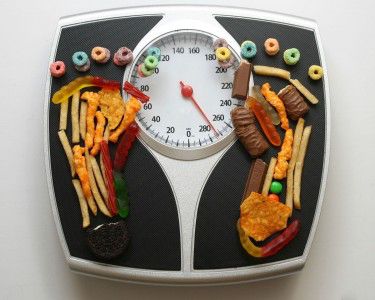The rise of the fast food industry has coincided with a rise in American children being overweight and obese, and people often attribute the latter to the former. University of North Carolina-Chapel Hill researchers, however, discovered that poor diets outside fast food consumption are more at fault for childhood obesity, according to a study published in the latest issue of The American Journal of Clinical Nutrition.
Jennifer Poti, a doctoral candidate in UNC’s Department of Nutrition and co-author of the study, said while researchers found fast food consumption to increase obesity rates, it was not solely to blame.

“What our study is finding is that while fast food is important, we found that the remainder of the diet, Western dietary patterns are actually more strongly associated with overweight obesity when compared to the association with just the fast food itself,” she said.
Types of Diets
The study focused on two distinct types of diets: Western and Prudent. These dietary patterns reflect the remainder of children’s food intake outside fast food restaurants, including grocery stores, supermarkets, schools and other locations. The Western diet is called “Western” because it is more common in the Western world.
“We identified a Western dietary pattern — which could also be called a less healthful dietary pattern — which was characterized by higher intake of sugar-sweetened beverages like sodas, salty snakes like potato chips, and also characterized by lower intake of foods that are considered more healthful, such as milk or fruit,” Poti said. “On the flipside, the Prudent dietary pattern, or the more healthful dietary pattern, is the opposite: lower intake of soda and potato chips and higher milk and fruit consumption.”
So a Western diet is more soda, candy, chips and fewer healthy foods, whereas the Prudent diet is the opposite.
The Study
Half of all U.S. children consume fast food to some degree. About 39.5 percent are low-consumers, where less than 30 percent of their energy comes from fast food, while 10.5 percent are high-consumers, where more than 30 percent of their energy comes from fast food. The Western dietary pattern is more likely among fast food consumers than among non-consumers.
From 2007 to 2010, researchers observed children ages 2 to 18 and obtained data on their fast food intake and other dietary habits. They found a higher correlation between Western dietary patterns and obesity than fast food consumption and obesity.
The crucial finding of the study is that children’s dietary pattern is independently associated with obesity, but fast food consumption is not.
Other Factors
Of course, a diet is not the only cause of children being overweight. Other factors do come into play, the most prevalent being daily exercise. However, the researchers at UNC sculpted their study to eliminate this extraneous factor.
“We used statistical regression modeling techniques in our study to adjust for the differences in exercise between fast-food consumers and non-consumers,” Poti said. “So we did take into account physical activity, but we don’t specifically focus on that aspect here, focusing more on dietary differences.”
Children could have a less healthy diet for a variety of reasons. They could lack time to prepare healthier foods instead relying on quick sugary bars and soups. They could have little access to better food, with their only option being salty snacks. They could have different dietary preferences, simply enjoying the taste of fatty, sugary fast foods more than healthier food.
A key factor could be financial constraints on a family — many American families cannot afford to buy healthier foods over cheap snacks.
Impacts for College Students
Do financial constraints sound pretty familiar, college students? While college students were not largely a part of the study, eating healthy is often a challenge for students on a budget.
Katy O’Neill, a Sargent College of Health and Rehabilitation Sciences sophomore, said it is difficult for college students to have access to healthier foods off-campus.
“It definitely can be expensive to buy healthier foods — when you go to the grocery store, produce isn’t very cheap most of the time,” she said. “So it can be easy to just buy a lot of junk food. I can see how that could very easily happen to a lot of college kids who fall into eating cheaper, processed food that isn’t good for you.”
While eating healthy isn’t always cheap, it is extremely important to body health and weight. O’Neill said eating habits are different at different stages of our lives: the younger you are, the less likely you are to care about what you eat.
“But usually as people get older and have to plan meals for their families, I think they take more consideration of what everyone is eating, including themselves.”
The Next Step
For the children in this study, though, their parents were not providing them with appropriate diets for any number of reasons. Poti is calling for better accessibility for healthier foods.
“We need strategies that aim to improve children’s diets at all the locations that children get their food, so not just fast food restaurants but also the food that children get from schools, supermarkets and grocery stores,” she said. “It is important to develop strategies to improve access to and promote the healthy food items within retail grocery stores and supermarkets.”
Poti said simply cutting fast food out of diets, while not necessarily a bad idea for health, is not the only step required to make children healthier.
“The takeaway is that while fast food is linked to child obesity, we found that the rest of the diet is perhaps even more important.”
This is an account occasionally used by the Daily Free Press editors to post archived posts from previous iterations of the site or otherwise for special circumstance publications. See authorship info on the byline at the top of the page.



